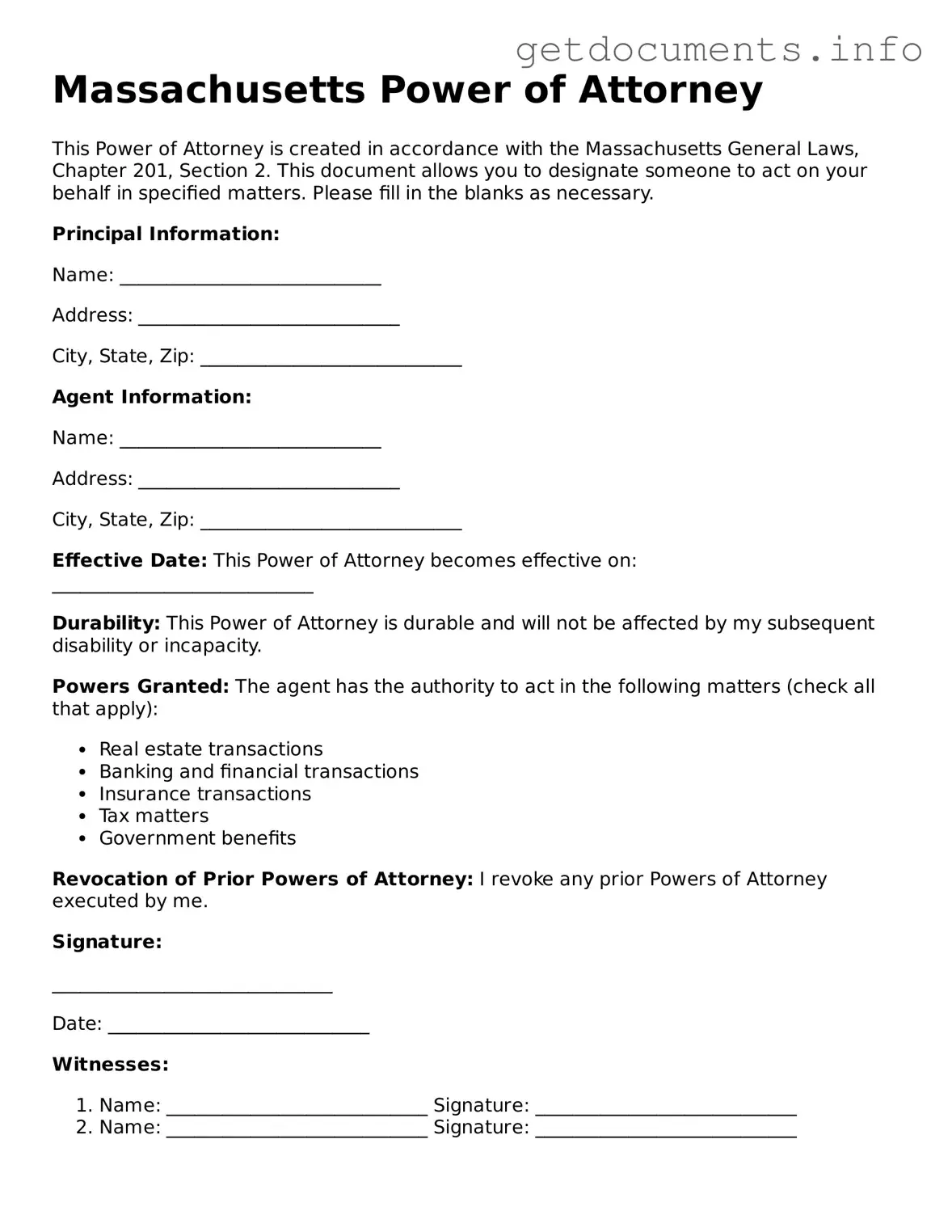Free Power of Attorney Template for Massachusetts
The Massachusetts Power of Attorney form is a legal document that allows one person to grant another individual the authority to make decisions on their behalf. This form is essential for ensuring that your financial and legal matters are handled according to your wishes, especially in times of incapacity. To take control of your future, consider filling out the form by clicking the button below.
Access Power of Attorney Editor

Free Power of Attorney Template for Massachusetts
Access Power of Attorney Editor
Got places to be? Complete the form fast
Fill out Power of Attorney online and avoid printing or scanning.
Access Power of Attorney Editor
or
⇩ PDF File
